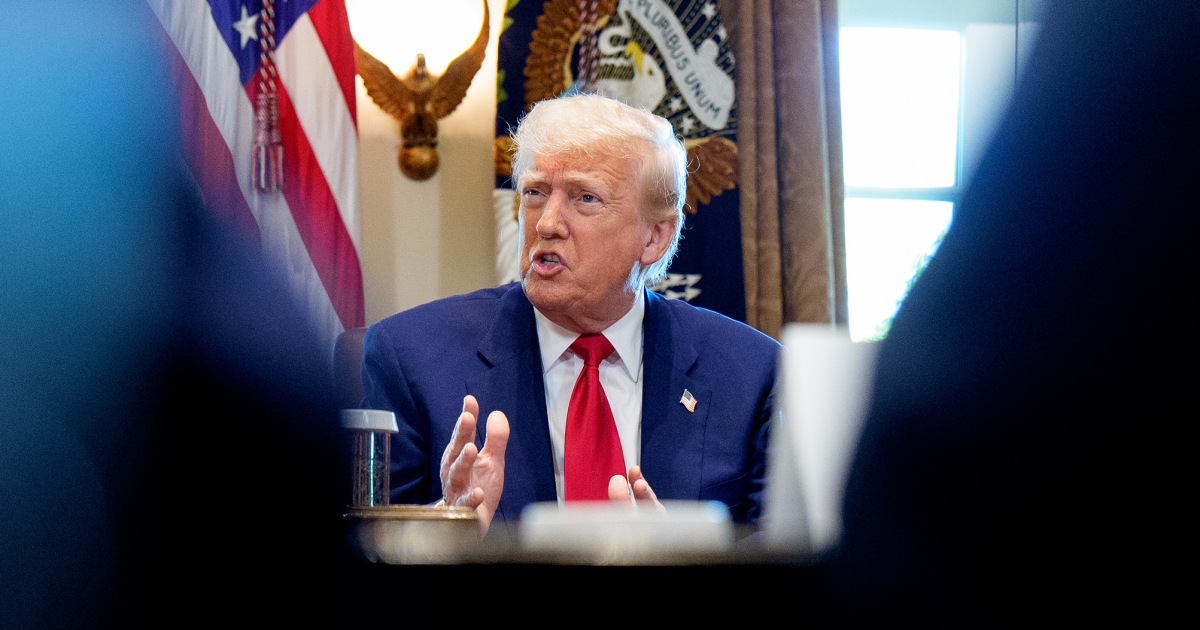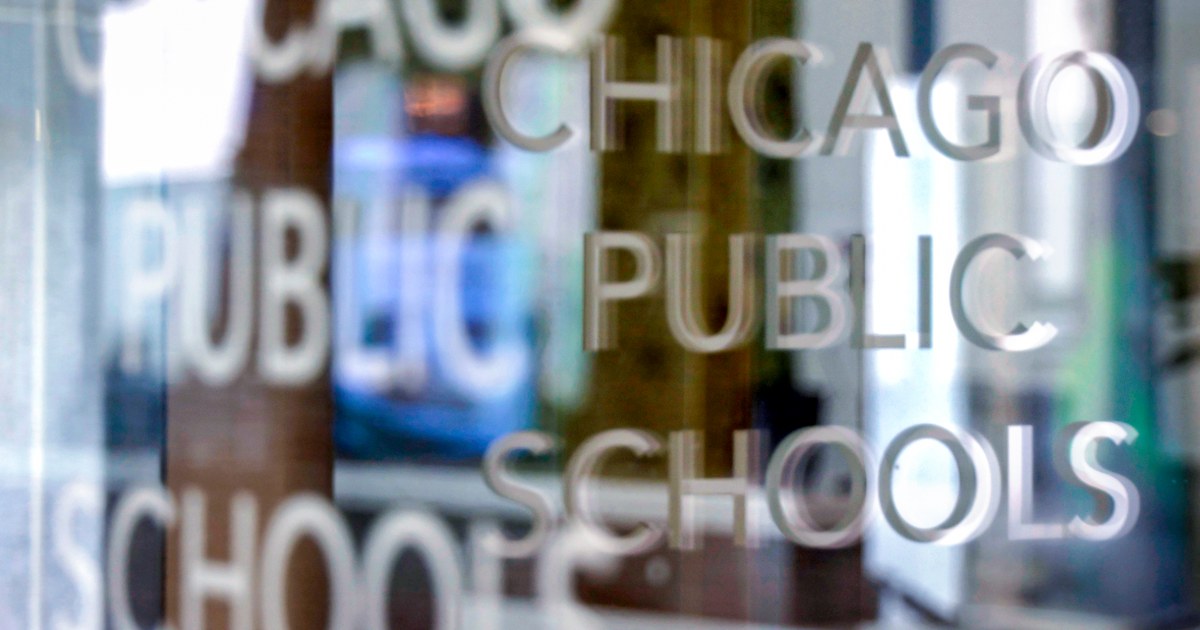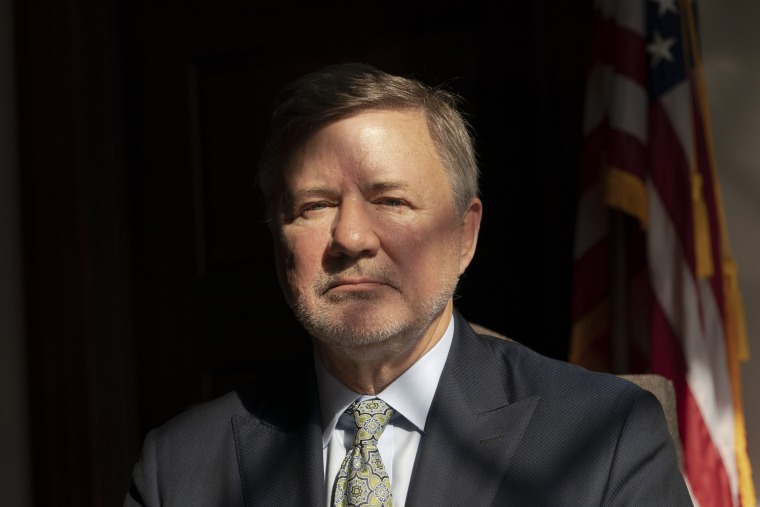Education
Trump says he will revoke Harvard’s tax-exempt status

President Donald Trump said Friday that he will revoke Harvard University’s tax-exempt status, the latest move in the escalating clash between the administration and the Ivy League school.
“We are going to be taking away Harvard’s Tax Exempt Status. It’s what they deserve!” Trump wrote in a post on Truth Social.
The president had previously suggested the university should lose its tax-exempt status. His latest statement came after Harvard sued the administration over its decision to freeze more than $2 billion in funding to the Ivy League school. The administration claimed the university was refusing to follow the administration’s demands that it take actions aimed at ending antisemitism on campus.
“Perhaps Harvard should lose its Tax Exempt Status and be Taxed as a Political Entity if it keeps pushing political, ideological, and terrorist inspired/supporting ‘Sickness?’” Trump threatened in a Truth Social post last month. He added, “Remember, Tax Exempt Status is totally contingent on acting in the PUBLIC INTEREST!”
Responding to Trump’s announcement Friday, Harvard spokesperson Jason Newton said that the government has “long exempted universities from taxes in order to support their educational mission” and that there was no legal basis to rescind its status.
“The tax exemption means that more of every dollar can go toward scholarships for students, lifesaving and life-enhancing medical research, and technological advancements that drive economic growth,” he said.
Newton added that revoking the university’s tax-exempt status “would endanger our ability to carry out our educational mission.”
“It would result in diminished financial aid for students, abandonment of critical medical research programs, and lost opportunities for innovation,” he continued. “The unlawful use of this instrument more broadly would have grave consequences for the future of higher education in America.”
In its lawsuit, Harvard accused the Trump administration of violating the First Amendment and other laws and regulations after it paused $2.2 billion in grants. The school called on a federal judge to declare the move unconstitutional and order the government to reinstate the funding.
The federal government froze funding to Harvard after the school said it wouldn’t comply with “critical reforms” called for by the Trump administration. Some of those changes included a demand for the discontinuation of diversity, equity and inclusion programs as well as reforms to programs “with egregious records of antisemitism or other bias.”
Harvard President Alan Garber told NBC News’ Lester Holt last week that the research funded by the federal grants is unrelated to antisemitism, which the school said in its lawsuit it has taken steps to address on its campus since Hamas’ Oct. 7 attack on Israel.
“Putting that research at jeopardy because of claims of antisemitism seems to us to be misguided,” Garber said. “The effort to address antisemitism will not be advanced by shutting off funding.”
Tax-exempt nonprofit groups, known as 501(c)(3) organizations, are prohibited from participating in certain political activities, according to the Internal Revenue Service. “Violating this prohibition may result in denial or revocation of tax-exempt status and the imposition of certain excise taxes,” the agency’s website says.
Soon after Trump’s Truth Social post, Senate Minority Leader Chuck Schumer, D-N.Y., and a group of other Senate Democrats sent a letter to the acting Treasury inspector general for tax administration requesting an investigation into the president’s targeting of Harvard’s tax-exempt status.
“It is both illegal and unconstitutional for the IRS to take direction from the President to target schools, hospitals, churches, or any other tax-exempt entities as retribution for using their free speech rights,” they wrote the official, Heather Hill.
They added, “We request that you review whether the President or his allies have taken any step to direct or pressure the IRS to take politically-motivated actions regarding the tax exempt status of the President’s political targets.”
Education
Education Department opens investigation into Chicago Public Schools

The U.S. Education Department is investigating Chicago Public Schools amid allegations that a new program designed to improve academic success and retention among Black students and educators violates federal law.
The investigation announced Tuesday is based on a February complaint by the nonprofit Parents Defending Education, now known as Defending Education, which alleged the school system’s academic-achievement initiative for Black students racially discriminates against students, violating Title VI of the Civil Rights Act.
The investigation appears to be the first time since President Donald Trump took office in January that the department has investigated a public school system for instituting a racially based program.
The school district is the fourth-largest in the nation with 321,000 students, of which 35% were Black in the 2023-2024 academic school year.
Acting Assistant Secretary for Civil Rights Craig Trainor said Chicago Public Schools sought through the Black Student Success Plan to allocate resources favoring students based on race.
“Chicago Public Schools have a record of academic failure, leaving students from all backgrounds and races struggling and ill-prepared to meet the challenges and enjoy the rewards of contemporary American life,” Trainor said in a statement.
Title VI prohibits discrimination based on race, color or national origin in education programs receiving federal funding. Schools found in violation of the act can lose federal funds, the department said.
“Chicago Public Schools does not comment on pending or ongoing litigation,” the school system said Wednesday.
School officials said the Black Student Success Plan was designed to ensure students had an equitable learning experience.
The school system announced the Black Student Success Plan during Black History Month in February, saying it aimed to improve academic achievement and to recruit and retain educators and leaders.
“The District is committed to removing these obstacles and calls upon the community to support efforts to better serve Black students,” Chicago Public Schools Chief Education Officer Bogdana Chkoumbova said when the initiative was made public.
Defending Education said in its complaint that “members oppose discrimination on the basis of race and political indoctrination in America’s schools” and called the plan “racially exclusive.”
The organization could not be reached for comment Wednesday.
The plan was scheduled to start this spring with the goal of shortening education gaps and fostering engagement with Black students and families, school officials said.
Chicago Teachers Union President Stacy Davis Gates said the investigation was an attempt to hinder progress in the school system.
“Rather than using the Department to create opportunities for students, Trump and (Education Secretary Linda E.) McMahon appear determined to transform it into a debt collection agency and a vehicle to dismantle the civil rights protections that support students and their families,” she said in a statement.
Education
Supreme Court considers endorsing country’s first religious public charter school

WASHINGTON — A case that could weaken the separation of church and state goes before the Supreme Court on Wednesday as the justices consider whether Oklahoma can approve the first-ever religious public charter school.
Although the oral argument concerns only St. Isidore of Seville Catholic Virtual School, which would operate online throughout the state with a remit to promote the Catholic faith, the case could have broad ramifications.
The dispute, which pits Republicans in Oklahoma against each other, highlights tensions within the Constitution’s First Amendment. While the Establishment Clause prohibits state endorsement of religion or preference for one religion over another, the Free Exercise Clause outlaws religious discrimination.
Lawyers for St. Isidore, who are defending the proposal along with the Oklahoma Statewide Charter School Board, have a narrow interpretation of the Establishment Clause and say barring religious entities from applying to run charter schools would run afoul of the Free Exercise Clause.
The Archdiocese of Oklahoma City and the Diocese of Tulsa jointly proposed the school.
“It’s not establishing a religion. It’s the government realizing that there are benefits to having private entities, and we just happen to be a religious private entity providing a valuable service,” Michael Scaperlanda, a former law professor who is now chancellor of the Archdiocese of Oklahoma City, said in an interview.
Oklahoma Attorney General Gentner Drummond, a Republican who challenged the decision to approve the school, said that although supporters of the idea are pushing a religious liberty narrative, he sees it differently.
“It is what it is, and that’s religious indoctrination,” he said.
In recent years, the Supreme Court has repeatedly strengthened the Free Exercise Clause in cases brought by conservative religious liberty activists, sometimes at the expense of the Establishment Clause. Some conservatives have long complained that the common understanding that the Establishment Clause requires strict separation of church and state is flawed.
The case raises two legal questions. The first is whether charter schools are public schools that are effectively instruments of the state or entirely private bodies that just happen to receive state funding.
If they are “state actors” in legal terms, then the state, wary of violating the Establishment Clause, is free to require that charter schools be secular.
The second question is, assuming charter schools are private entities, whether it is a form of religious discrimination under the Free Exercise Clause to bar religious schools from a state charter school program that other entities can participate in.

Although the court has a 6-3 conservative majority that often backs religious rights, the case is complicated somewhat by conservative Justice Amy Coney Barrett’s decision to recuse herself. Were the court to split 4-4, the Oklahoma Supreme Court ruling that said the school was unconstitutional would remain intact.
Barrett did not explain why she stepped aside. Before she become a judge, she was a professor at Notre Dame Law School and has close ties there. The law school’s Religious Liberty Clinic represents St. Isidore.
The campaign to authorize religious public charter schools dovetails with the school choice movement, which supports parents’ being able to use taxpayer funds to send their children to private school. Public school advocates see both as broad assaults on traditional public schools.
The school’s lawyers present the case as strictly a Free Exercise Clause issue and cite to a trio of recent rulings in which the Supreme Court said states cannot bar religious entities from programs that nonreligious private groups can apply for.
“Yet, that is precisely what the state did here,” they wrote in court papers.
Drummond countered in his own briefing that charter schools in Oklahoma are like all other public schools, meaning the state can require them not to be sectarian.
How the court ultimately rules will have nationwide implications. All 46 states that allow public charter schools do not allow religious entities to participate, so a ruling in favor of St. Isidore would open the doors to other states’ either changing their laws to allow religious schools or facing lawsuits that would require them.
Drummond said in court papers that such a ruling would bring charter school laws nationwide into question and give “special status” to religious charter schools, because, unlike secular schools, they may not have to comply with certain laws that apply to charter schools if they conflict with religious beliefs.
He told NBC News, “If we go down this road, we have to be prepared for the ramifications.”
A win for St. Isidore could also have unintended consequences, lawyers for the National Alliance for Public Charter Schools warned in a friend-of-the-court brief. They noted, for example, that many charter schools would risk losing vital state funding if the court concluded they are not public schools given that the state bans public money going to any private schools, whether they are religious or not.
The case could also have repercussions at the federal level, where a program that provides funds to charter schools prohibits money from going to sectarian schools.
A state board approved the proposal for St. Isidore in June 2023 despite concerns about its religious nature.
Drummond immediately took legal action, asking the state Supreme Court to intervene and declare the plan unlawful.
The state court ruled last year that the school would violate both state law and the First Amendment.
Education
Trump administration says Penn violated sex discrimination laws after trans swimmer competed

HARRISBURG, Pa. — The Trump administration said Monday that the University of Pennsylvania violated laws guaranteeing women equal opportunities in athletics by letting a transgender swimmer compete on the school’s women’s team and into team facilities.
The administration’s statement does not name Lia Thomas, the transgender swimmer who last competed for the Ivy League school in Philadelphia in 2022 and was the first openly transgender athlete to win a Division I title that year — an award Thomas now faces losing.
But the investigation opened in February by the U.S. Education Department’s Office for Civil Rights focused on Thomas, who became a leading symbol of transgender athletes and a prominent political target of Republicans and President Donald Trump.
The department said Penn violated a law barring sex discrimination in schools and colleges, called Title IX, by “denying women equal opportunities by permitting males to compete in women’s intercollegiate athletics and to occupy women-only intimate facilities.”
Penn had no immediate comment Monday, but Penn has said in the past that it always followed NCAA and Ivy League policies regarding student participation on athletic teams, both when Thomas swam and currently.
The department said Penn has 10 days to voluntarily resolve the violations or risk prosecution.
The department wants Penn to issue a statement saying that it will comply with Title IX; effectively strip Thomas of any awards or records in Division I swimming competitions; and apologize to each female swimmer “whose individual recognition is restored expressing an apology on behalf of the university for allowing her educational experience in athletics to be marred by sex discrimination.”
The Trump administration in March suspended approximately $175 million in federal funding for Penn over its decision to let Thomas compete, the White House has said. The Ivy League school’s federal money came from the Defense Department and the Department of Health and Human Services.
In 2022, the NCAA used a sport-by-sport approach to allowing transgender athletes to participate, deferring to an individual sport’s national governing organization, international federation or prior established International Olympic Committee criteria.
Thomas competed under those guidelines, which allowed female transgender swimmers who had completed one year of hormone replacement therapy to compete.
The NCAA changed its policy the day after Trump signed an executive order on Feb. 5 that was intended to ban transgender athletes from competing in girls and women’s sports. That ended its sport-by-sport practice in favor of a blanket policy that only allows athletes assigned female at birth to participate in women’s sports.
The Education Department also opened reviews of San Jose State University volleyball, Denver Public Schools, Portland Public Schools, Oregon School Activities Association and the Massachusetts Interscholastic Athletic Association.
It also sued the state of Maine to force it to ban transgender athletes from girls’ and women’s sports or face prosecution.
-

 Europe2 days ago
Europe2 days agoMo Abudu, Nigerian media mogul, has a vision for African cinema
-

 Middle East1 day ago
Middle East1 day agoDrones hit ‘Freedom Flotilla’ Gaza aid ship in international waters | Israel-Palestine conflict News
-

 Sports2 days ago
Sports2 days agoCoco Gauff hands Iga Świątek one of the worst defeats of her career to reach Madrid Open final
-

 Europe1 day ago
Europe1 day agoAnalysis: US tariffs could make Europe ‘Great Again’ by lowering prices
-

 Lifestyle2 days ago
Lifestyle2 days agoAP PHOTOS: Artists in this former pasta factory preserve Italian opera traditions
-

 Lifestyle2 days ago
Lifestyle2 days agoBlack dandyism etches place into Met Gala history — and global visibility
-

 Sports2 days ago
Sports2 days agoRafael Nadal tells CNN exclusively that he ‘100%’ believes Jannik Sinner is innocent amid return from doping suspension
-

 Middle East2 days ago
Middle East2 days agoSyrian Druze leader condemns government over sectarian violence | News




